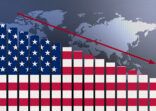“Investors are seeking more disclosure from companies about how they are addressing these risks as the financial implications are becoming clearer,” said Ram Sri-Saravanapavaan, ESG analyst at Moody’s Investors Services in a recent report.
In particular, climate risk is taking on greater prominence in discussions of credit quality, while issues such as water scarcity, biodiversity, land use, deforestation and food insecurity will put a
spotlight on bond issuers’ management of resources.
Stricter climate policies will raise transition risk for the most exposed carbon-intensive sectors, including utilities, oil and gas, auto manufacturing, airlines, building materials and shipping; while concerns about future asset write-downs and reduced cash flow may raise companies’ cost of capital or reduce access to funding, impairing their ability to raise, service or refinance debt, according to Sri-Saravanapavaan.
The impetus is coming largely from public pressure and shifts in consumer preferences, which are insisting on better practices and regulatory changes that could be expensive for some industries to respond to, but potentially even costlier if they don’t, through future reputational damage or financial penalties.
“Investor scrutiny will increase for companies that fail to address concerns about their hydrocarbon and physical risk exposure. Lack of preparedness by companies will compound risks for investors,” said Sri-Saravanapavaan.
“Consumer activism and heightened focus on responsible production throughout the supply chain will exacerbate the risks of certain products and services, and encourage regulation,” he added.
There is barely an industry that will not have to adjust to one or other ESG factor, according to Moody’s review of individual sectors late last year.
However, some industries are, unsurprisingly more vulnerable than others. For instance, oil and gas, and mining and base metals have an “elevated exposure to environmental risk”, automakers are “facing mounting environmental policy pressures”, chemicals firms are facing regulatory restrictions on single-use plastics, healthcare is increasingly impacted by social factors such as perception and affordability, and the financial sector faces increasing governance scrutiny.
Several fund managers are already incorporating ESG screening and qualitative analysis in their bond selections and portfolio allocations. For instance, M&G runs a global high yield ESG bond fund that combines exclusion with positive integration. Specific industries are automatically rejected, such as tobacco, gambling, armaments, alcohol, thermal coal and nuclear energy. An active part of the process applies scores to companies derived from the MSCI and internal analysis: on a scale of one-to-10, the fund will not buy the bonds of a company with a rating of less than three.
The ratings are compiled from an analysis of corporate governance issues, such as transparency, treatment of stakeholders and corruption; impact on local communities; and activities that have a negative (and positive) effect on the environment. M&G has a central ESG team whose analysis is incorporated in the bond research and portfolio construction process, the fund’s manager James Tomlins told FSA previously.
Last September, Federated Hermes launched a SDG Engagement High Yield Credit Fund in partnership with UBS Wealth Management which is a variant on the ESG theme . The managers aim to work with companies whose bonds the fund holds to improve operating practices and drive positive change in line with the United Nations Sustainable Development Goals framework, rather than buy bonds of companies which already fulfill specific ESG criteria.
Moreover, recent quantitative research by JP Morgan Asset Management found that an ESG overlay improves returns and reduces volatility for corporate bond investors.

















